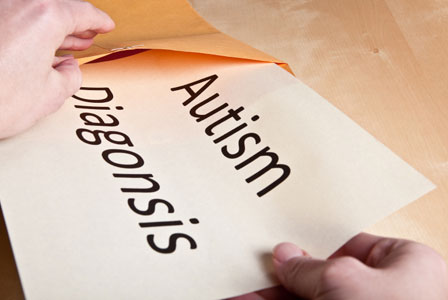
With her son reaching puberty, writer Miriam Kamin is shoring up for new challenges. Her down-to-earth approach is inspiring to parents just beginning the journey of raising a child with special needs.
abandon the 'plan'
and be flexible
Miriam Kamin, author of the popular parenting blog Woulda Coulda Shoulda, is the mom of a teen daughter and a 13-year-old son. Her son was first diagnosed with Sensory Processing Disorder at the age of 6, and Asperger's syndrome at the age of 9. She shares her autism story, from the early uncertainties of recognizing that “something” was going on to the unique experience of parenting a child who openly discusses his diagnosis.
Reaching for connections
After receiving occupational therapy for a few years for sensory issues, Kamin’s son appeared to be improving. Despite his achievements, her instincts continued to tell her something wasn’t right. “He was still having meltdowns, and he was getting old enough that people were clucking their tongues and making snide comments about our parenting,” Kamin says. “He knew he was different, but he didn't know why. A lot of kids on the spectrum are loners, but he never was. He wanted those social connections he just couldn't seem to master. It was heartbreaking.”
Learn about getting started with occupational therapy for Sensory Processing Disorder>>
Finding what works
After being diagnosed with Asperger's syndrome at age 9, Kamin’s son benefited from a variety of therapies. “Occupational therapy helped him do everything from adjusting to ‘scratchy’ clothing to eating all kinds of foods,” Kamin says. “Regular talk therapy with a practitioner who specializes in spectrum kids has been very useful, as well, as have various ‘social skills’ groups he's attended.” Not every type of autism therapy worked for the Kamin family. “I know we've seen the greatest amount of growth when we finally abandoned the ‘plan out every minute’ approach and said, ‘Here's the deal. Life requires flexibility. Sometimes there's a plan, sometimes there isn't one. Sometimes the plan changes. So how do we deal with that?’”
Embracing a diagnosis
“I know a lot of people feel like a diagnosis is depressing or daunting. For us, the diagnosis was the start of things getting better,” Kamin says. At 13, her son is proud to be an Aspie, and he’s happy to talk about it. When it comes to calming behaviors and rituals, he’s able to communicate why he acts a certain way and how it feels. “My favorite recent story is that he struck up a conversation with a nice, older lady in a waiting room and went off on a big tangent about algebra, and she was kind enough to say, ‘You must know a lot about math!’ I thought for sure he would just agree, but instead he said, ‘I am pretty good at math, but I have some social difficulties.’ ”
More about parenting and autism
Parenting and autism: Maria's story
Parenting and autism: Jessica's story
Parenting and autism: Amy's story